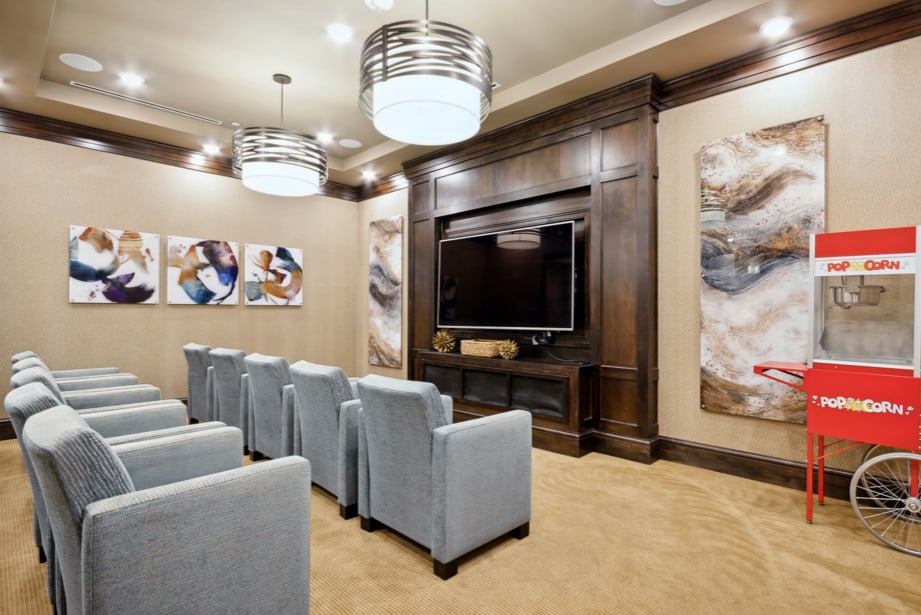Deciding to transition a loved one to memory care can be a challenge. The early signs of dementia are difficult to recognize, and it’s easy to mistake cognitive decline for age-related changes. So how do you know if it’s time for memory care?
If your loved one’s cognitive state interferes with their daily life, it’s time for memory care. These communities are set up to support your loved one through this journey. By treating them as a unique individual, memory care is an excellent way to help a loved one in need.
What Is Memory Care?
Memory care is a specialized lifestyle for older adults. This care targets those living with Alzheimer’s disease, cognitive decline, memory impairment, and dementia.
The purpose of memory care is simple. It’s about providing a safe environment where residents receive around-the-clock care for cognitive conditions. There’s a team of experienced caregivers on-site ready to help your loved one every day.
Memory care communities offer:
- Structured activities
- Daily routines
- Therapy programs
- Secure environments
- Tailored care
Memory care focuses strongly on creating a secure lifestyle where your loved one can thrive. It’s about supporting them in a way that makes a difference and treating them as a unique individual.
How Does Memory Care Help?
Memory care communities aren’t just residential homes. Every aspect of the community, from the on-site teams to the physical environment, is designed to support those in need.
Professional caregivers are trained to manage symptoms every day. These teams undergo extensive training so they know how to help with the unique challenges posed by dementia. They provide personal care designed to support your loved one through this journey.
The philosophy behind memory care is about enriching your loved one’s life and celebrating them every day. With kindness and compassion at the core, memory care works closely with your family to make a difference.
Meanwhile, there are also structured routines designed to reduce frustration and anxiety. Memory care offers a mix of cognitive activities, therapeutic programs, and plenty of amenities to make every day matter.
It’s not just about your loved one, either. Memory care helps give your family peace of mind knowing that your loved one is in a place that treats them as the unique person they are. This approach helps preserve your loved one’s dignity, quality of life, and respect.
Who Should Move to Memory Care?
If your loved one is diagnosed with dementia, memory care can help. An early move to memory care makes a difference—this helps your loved one receive support sooner rather than later. This gives them much more time to adjust and adapt to this lifestyle.
Memory care also helps when cognitive decline is too challenging to care for at home. Dementia often creates unique situations that can be difficult to meet without professional support. Through specialized care designed for those living with dementia, memory care offers a safe, structured, and supportive environment.
Memory care isn’t just about managing symptoms or providing a safe place to live. It’s about giving your loved one the support they need to maintain a fulfilling lifestyle. Through compassionate care and our support, memory care restores dignity and respect to your loved one every day.
How to Tell if It’s Time for Memory Care
The first step to helping your loved one is to identify the signs they’re struggling. Try to keep an eye out for:
- Noticeable changes in memory that interfere with daily tasks
- Difficulty managing medications or consistently missing doses
- Increased confusion or disorientation in familiar settings
- Challenges with communication, such as struggling to find the right words
- Physical signs of neglect like poor hygiene or an unkempt appearance
- Unexplained mood swings or noticeable changes in behavior
These symptoms all indicate cognitive changes. It’s crucial to visit a healthcare professional as soon as you can for a professional diagnosis. This is key to getting your loved one the care they need.
It also helps to reach out to memory care communities near you. An earlier move can make all the difference in the world, and the community can offer valuable support and resources to your family. Remember—memory care is about helping your loved one through their unique situation, and our team is ready to help.
Is It Time for Memory Care?
Deciding to move a loved one to memory care is a significant step. However, it’s also key to making a difference in a way that matters. And here at The Grande at Chesterfield, we’re ready to help.
Through our Lilac Trace Memory Care lifestyle, our team can support your loved one on their journey. Our unique philosophy is about meeting your loved one where they are and celebrating their life every day. For more information, contact our team, or schedule a visit with us today. We’re here to guide you and your family on this journey.










